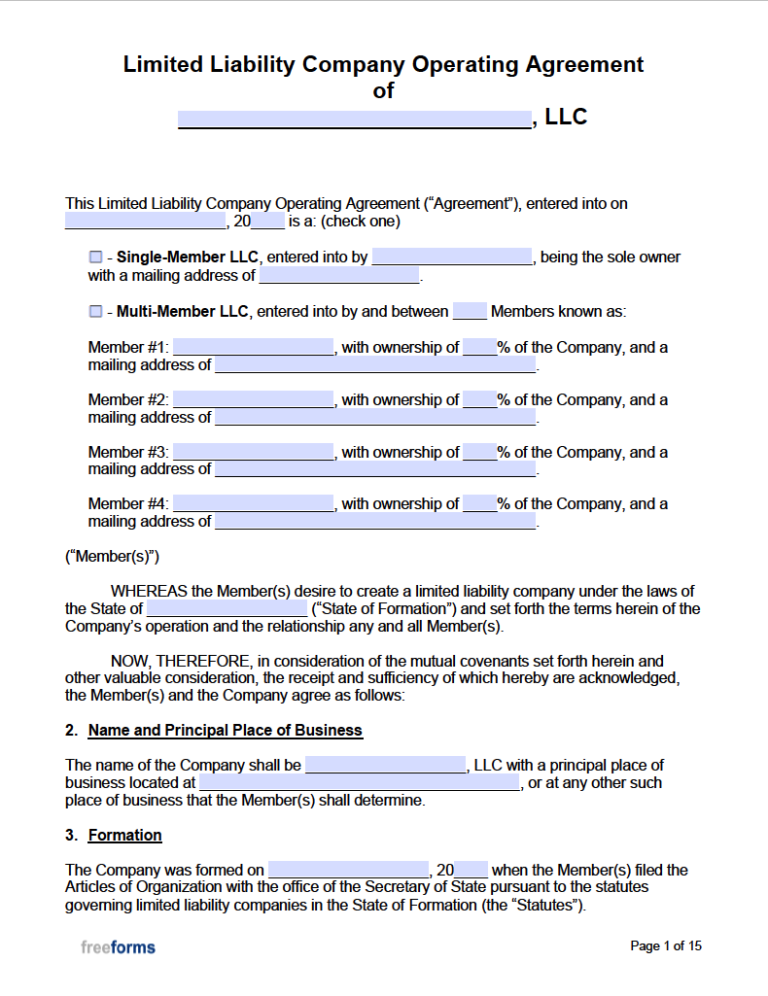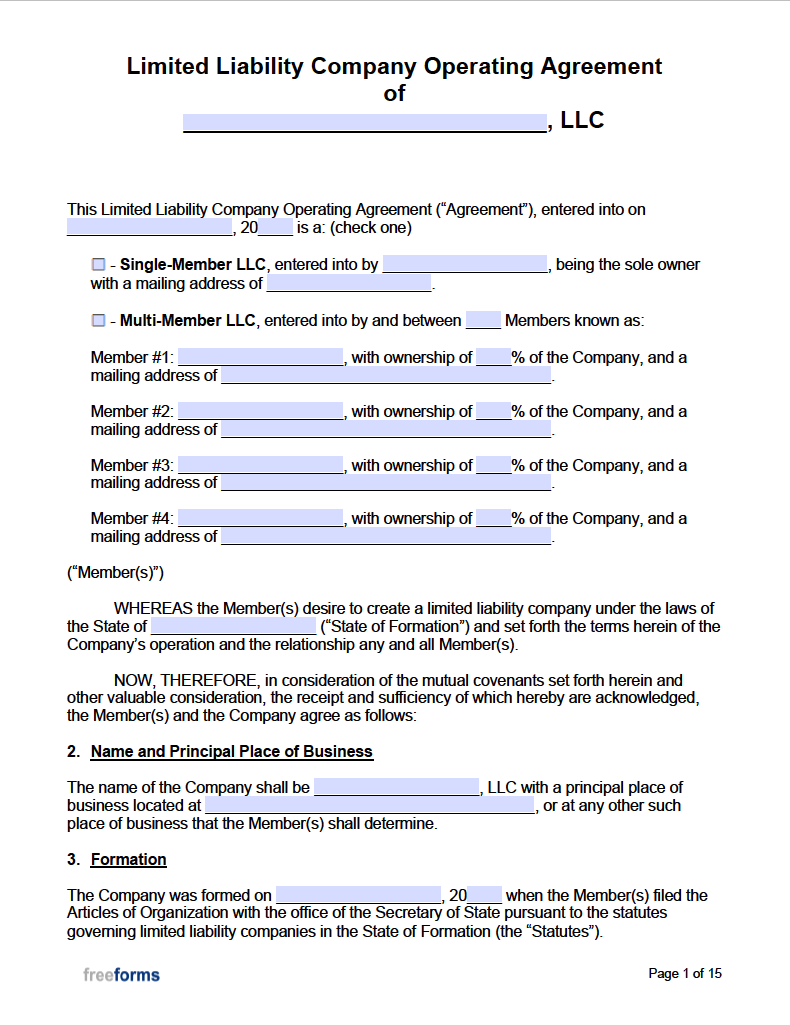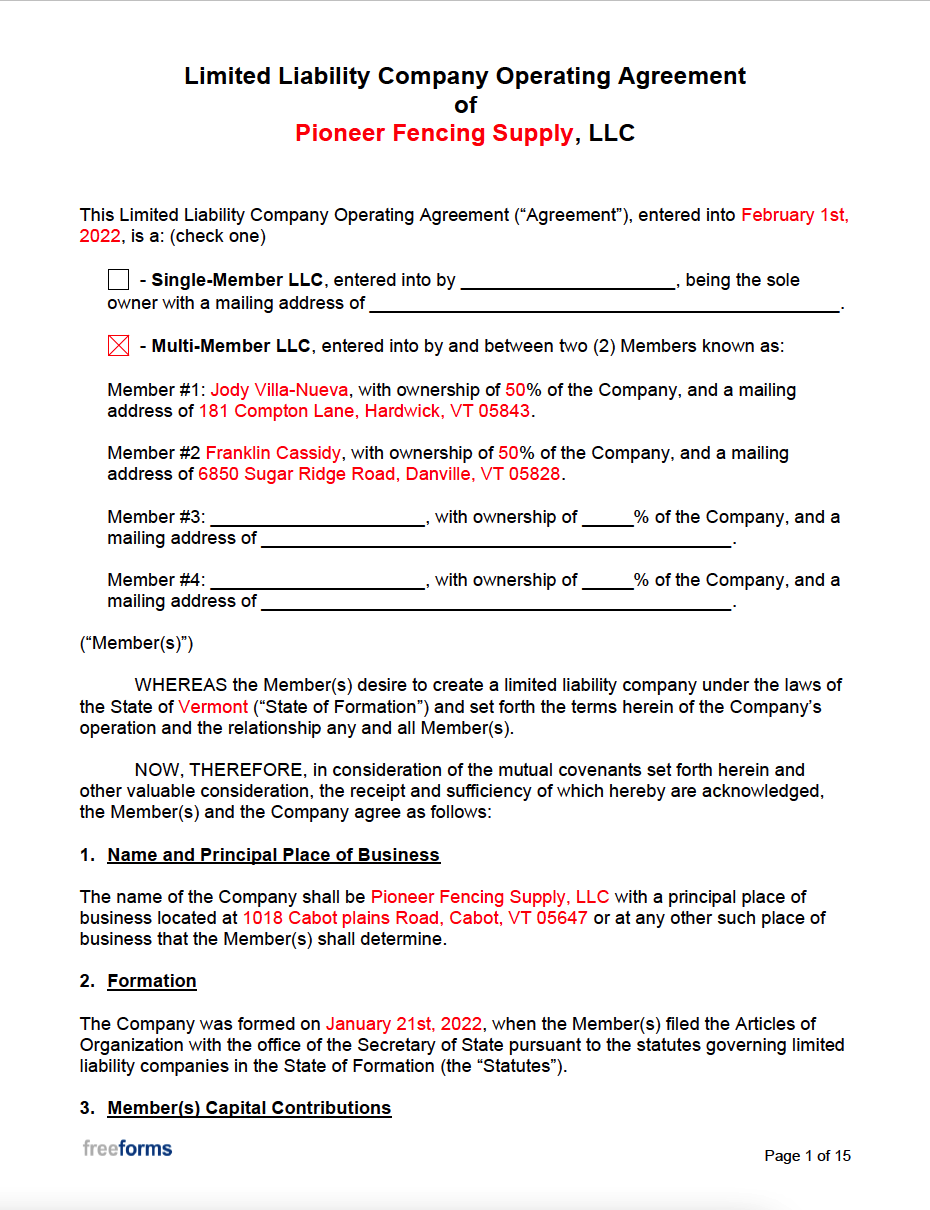Is an Operating Agreement Required for an LLC?
Only select states demand that an executed operating agreement be furnished by law. The following five (5) states legally require an operating agreement to be registered for all LLCs: California, Delaware, Maine, Missouri, and New York. The remaining states do not officially compel businesses to produce the agreements a requisite to form an LLC, but it is strongly advised.
By State
- Alabama
- Alaska
- Arizona
- Arkansas
- California
- Colorado
- Connecticut
- Delaware
- Florida
- Georgia
- Hawaii
- Idaho
- Illinois
- Indiana
- Iowa
- Kansas
- Kentucky
- Louisiana
- Maine
- Maryland
- Massachusetts
- Michigan
- Minnesota
- Mississippi
- Missouri
- Montana
- Nebraska
- Nevada
- New Hampshire
- New Jersey
- New Mexico
- New York
- North Carolina
- North Dakota
- Ohio
- Oklahoma
- Oregon
- Pennsylvania
- Rhode Island
- South Carolina
- South Dakota
- Tennessee
- Texas
- Utah
- Vermont
- Virginia
- Washington
- West Virginia
- Wisconsin
- Wyoming
By Type (2)
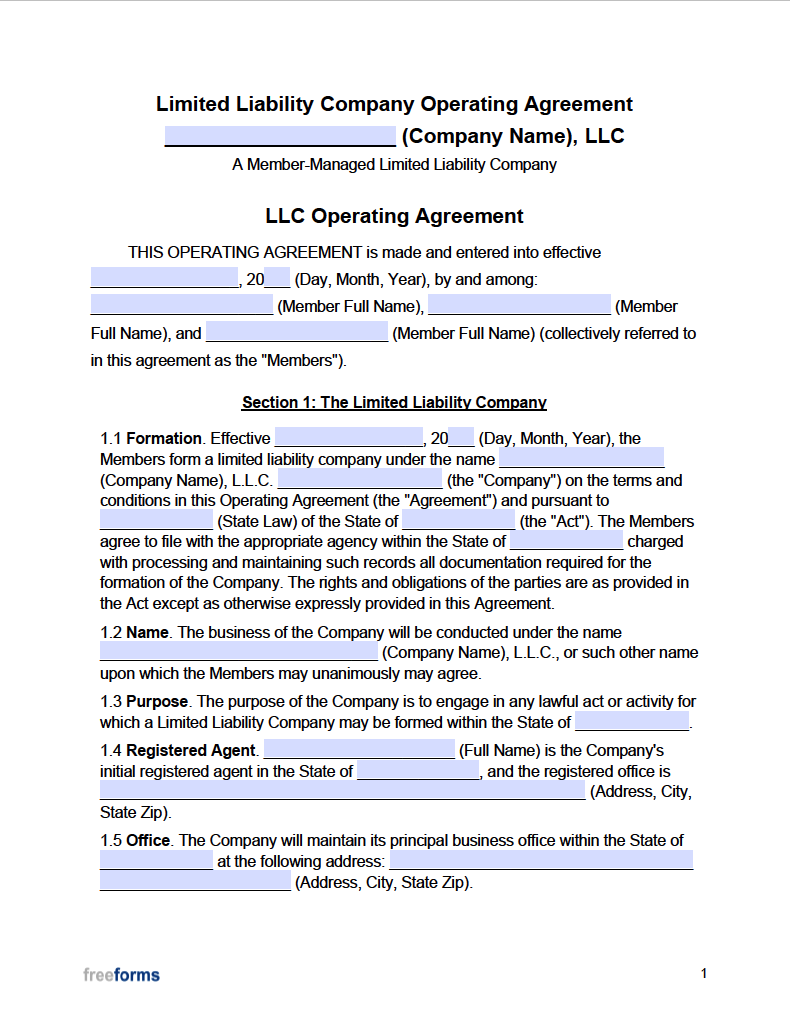 Multi-Member Operating Agreement – To be utilized by LLCs that will have two (2) or more named owners.
Multi-Member Operating Agreement – To be utilized by LLCs that will have two (2) or more named owners.
Download: Adobe PDF, MS Word (.docx)
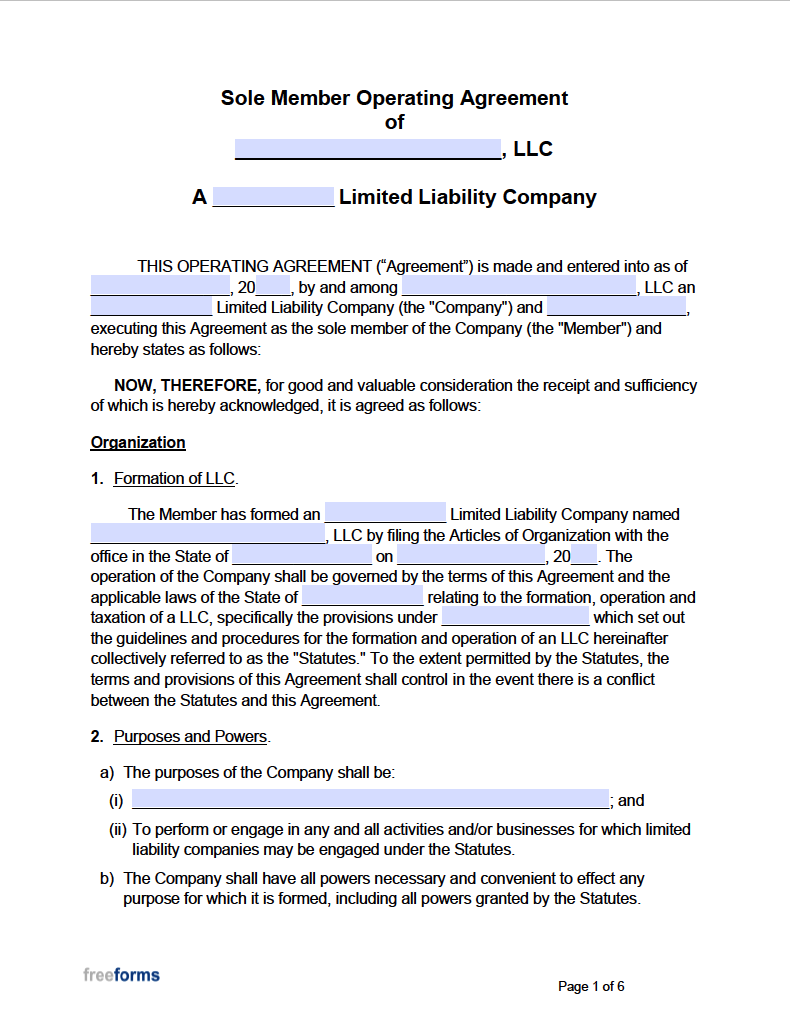 Single-Member Operating Agreement – Designed to be used with LLCs that have only one (1) owner.
Single-Member Operating Agreement – Designed to be used with LLCs that have only one (1) owner.
Download: Adobe PDF, MS Word (.docx)
What is an LLC Operating Agreement?
An LLC operating agreement is a document that provides a concrete understanding of the expectations and approaches regarding the creation of a limited liability corporation. The formal arrangement summarizes the particulars concerning ownership, responsibilities, and internal regulation of a business entity. The named owning individuals or “members” are recognized within the form to legally confirm their interest and set forth intentions for the business’s formation and structure. The contract functions to establish standards to govern in-house operations within the following categories:
- Company Information – Identifies the LLC’s name, address, and business purpose. Separate clauses can be allocated to cover stipulations of liability, intent, and tax preference for the company.
- Organization – Confirms the names and titles of all designated members and their respective interest percentage holdings. Denotes the responsibilities of each member or manager associated with the company and outlines rules on how meetings are held, financial records are documented, and voting is conducted.
- Contributions – Maintains a detailed account of the initial capital offered to the business by each member. A listing of previous or current non-monetary contributions to the company, such as a member’s property (personal, real, or intellectual), unique expertise, or labor, can additionally be recorded.
- Distributions – Defines the process in which any profits or losses will be divided amongst members of the LLC.
- Membership Changes – Determines the procedure for admitting possible new members and how the transfer of interest must be carried out. A “first right of refusal” option can be developed within the contract, as well as a solidified course of action in the event of a member’s death.
- Dissolution – Under circumstances where the company is to be dissolved, paragraphs confirming the precise liquidation method can be addressed.
Depending on where you live in the country, there may be state-specific clauses that must be contained within the operating agreement to legally enforce the commitment.
How to Create an LLC
Sample LLC Operating Agreement Form
Download: Adobe PDF, MS Word (.docx)
